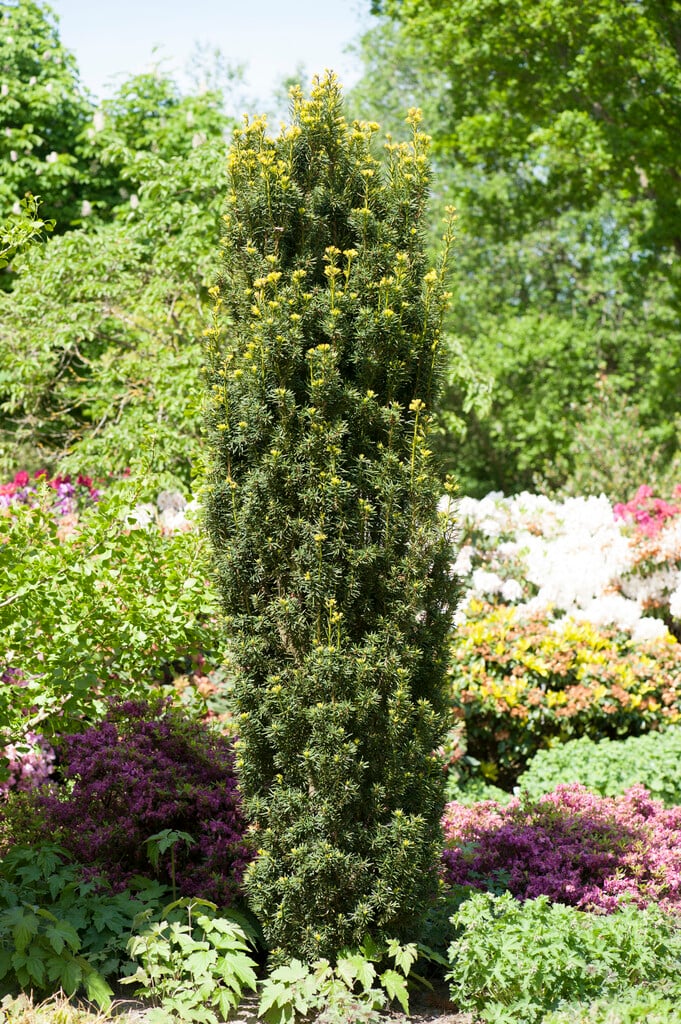Taxus cuspidata
Japanese yew
A dense pyramid-shaped evergreen, which becomes rounded with age. Yew lends itself to both hedging or topiary. Male and female plants exist; females with red berries, males with pale yellow-green flowers. Tolerant of pollution
Size
Ultimate height
4–8 metresTime to ultimate height
20–50 yearsUltimate spread
2.5–4 metresGrowing conditions
Moisture
Well–drainedpH
Acid, Alkaline, NeutralColour & scent
| Stem | Flower | Foliage | Fruit | |
| Spring | Cream | Green | ||
|---|---|---|---|---|
| Summer | Green | |||
| Autumn | Green | Red | ||
| Winter | Green |
Position
- Full shade
- Full sun
- Partial shade
Aspect
East–facing or North–facing or South–facing or West–facing
Exposure
Exposed Hardiness
H7Botanical details
- Family
- Taxaceae
- Native to GB / Ireland
- No
- Foliage
- Evergreen
- Habit
- Bushy, Spreading branched
- Potentially harmful
- TOXIC if eaten. Wear gloves and other protective equipment when handling. TOXIC to pets if eaten - see the HTA guide to potentially harmful plants for further information and useful contact numbers
- Genus
Taxus are small evergreen trees or large shrubs of rounded habit, with dense, linear leaves, insignificant flowers and, on female plants, conspicuous fleshy red arils surrounding the solitary seeds
- Name status
Correct
How to grow
Cultivation
Grow in any well drained soil. Both male and female plants available - females will have red berries, males masses of pale yellow flowers making clouds of pollen. For more information of specialist uses of Yew see our advice page on hedges and topiary care.
Propagation
Propagate by semi-ripe cuttings or by sowing seed as soon as it is ripe, outdoors. For more advice see our information on how to propagate from seed (tree/shrub
Suggested planting locations and garden types
- Architectural
- Low Maintenance
- Hedging and screens
Pruning
Pruning group 1 if grown as a tree. As a hedge, Yew is pruned in late summer or more often for a very formal appearance. Yew is also suitable for topiary.
Pests
May be susceptible to tortrix moth, vine weevil, gall mites and scale insects
Diseases
May be susceptible to phytophthora root diseases
Get involved
The RHS is the UK’s gardening charity, helping people and plants to grow - nurturing a healthier, happier world, one person and one plant at a time.
